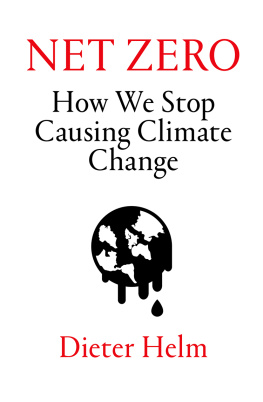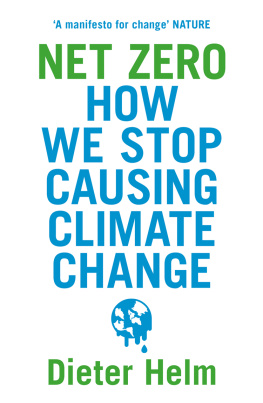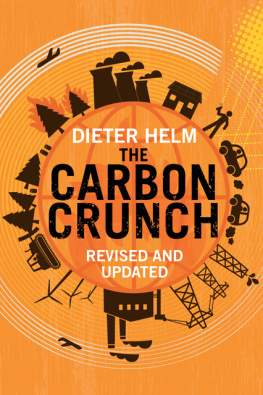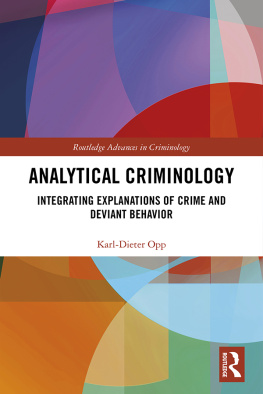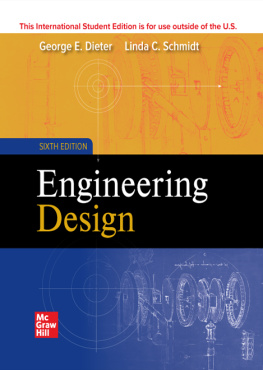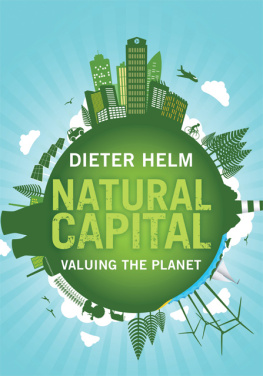Dieter Helm - Net Zero
Here you can read online Dieter Helm - Net Zero full text of the book (entire story) in english for free. Download pdf and epub, get meaning, cover and reviews about this ebook. year: 2020, publisher: HarperCollins Publishers, genre: Politics. Description of the work, (preface) as well as reviews are available. Best literature library LitArk.com created for fans of good reading and offers a wide selection of genres:
Romance novel
Science fiction
Adventure
Detective
Science
History
Home and family
Prose
Art
Politics
Computer
Non-fiction
Religion
Business
Children
Humor
Choose a favorite category and find really read worthwhile books. Enjoy immersion in the world of imagination, feel the emotions of the characters or learn something new for yourself, make an fascinating discovery.
- Book:Net Zero
- Author:
- Publisher:HarperCollins Publishers
- Genre:
- Year:2020
- Rating:3 / 5
- Favourites:Add to favourites
- Your mark:
- 60
- 1
- 2
- 3
- 4
- 5
Net Zero: summary, description and annotation
We offer to read an annotation, description, summary or preface (depends on what the author of the book "Net Zero" wrote himself). If you haven't found the necessary information about the book — write in the comments, we will try to find it.
Net Zero — read online for free the complete book (whole text) full work
Below is the text of the book, divided by pages. System saving the place of the last page read, allows you to conveniently read the book "Net Zero" online for free, without having to search again every time where you left off. Put a bookmark, and you can go to the page where you finished reading at any time.
Font size:
Interval:
Bookmark:

CONTENTS

Professor Dieter Helm is Professor of Economic Policy at the University of Oxford and Official Fellow in Economics at New College, Oxford. He specialises in the environment, notably in climate change, biodiversity, water, energy and agriculture. Previous books have included: Green and Prosperous Land: A Blueprint for rescuing the British Countryside, Burn Out: The Endgame for Fossil Fuels, The Carbon Crunch and Natural Capital: Valuing the Planet. In December 2015, Dieter was reappointed as Independent Chair of the Natural Capital Committee. He is also an Honorary Vice President of the Berkshire, Buckinghamshire and Oxfordshire Wildlife Trust.
What can we really do about climate change?
Thirty years ago, world leaders vowed to reduce carbon emissions. Thirty years later, the concentration of carbon in the atmosphere continues to grow. At the same time, the Earths ability to absorb carbon continues to be degraded.
Today, the Paris Agreement target of halting global temperature rise at 1.5 degrees is unattainable and 3 degrees has become a demanding aspiration. As Extinction Rebellion and climate protestors call for action, the inconvenient truth is that we are the ones causing the climate crisis with our carbon intensive lifestyles.
In Net Zero the economist Professor Dieter Helm addresses the action we all need to take to tackle the climate emergency: personal, local, national and global. Reducing our own carbon consumption is the first step. Helm argues that we, the ultimate polluters, should pay based on how much carbon the products we buy produce. We need a carbon price, and one that applies to everything and everywhere, from flights, to food and farming.
The goal of net zero carbon emissions needs a rethink. This book sets out how to do it in a plan that could and would work. Do this and we make no further contribution to global warming, in a way that embraces sustainable economic growth and does not harm other aspects of the environment in the process. There is a solution and we cannot waste the next thirty years.
Ackerman, F., DeCanio, S. J., Howarth, R. B. and Sheeran, K., Limitations of integrated assessment models of climate change, Climatic Change, 95, 2009, pp 297315
Awbi, H. B., Ventilation for Good Indoor Air Quality and Energy Efficiency, Energy Procedia, 112, March 2017, pp 277286
Baltensperger, M. and Dadush, U., The European UnionMercosur Free Trade Agreement: Prospects and Risks, Policy Contribution, 11, September 2019
Barrett, S., Environment and Statecraft: The Strategy of Environmental Treaty-making. Oxford: Oxford University Press, 2005
Bastin, J-F., Finegold, Y., Mollicone, D., Rezende, M., Routh, D., Zohner, C. M. and Crowther, T. W., The global tree restoration potential, Science, 365, 2019, pp 7679
Becqu, R., Dubsky, E., Hamza-Goodacre, D. and Lewis, M., Europes Carbon Loophole, September 2017
Beiser-McGrath, L. F. and Bernauer, T., Could revenue recycling make effective carbon taxation politically feasible?, Science Advances, 5(9), 18 September 2019
Berlin, I., The Crooked Timber of Humanity: Chapters in the History of Ideas. London: Pimlico, 2013
BP, BP Energy Outlook: 2019 Edition, BP plc, 2019
Broome, J., Climate Matters: Ethics in a Warming World. New York: W. W. Norton & Company Inc., 2012
Catapult Energy Systems, Preparing UK Electricity Networks for Electric Vehicles, Report, 2018
Centre for Rural Economy, Brexit: How might UK agriculture thrive or survive?, Note No. 7, School of Natural and Environmental Sciences, Newcastle University, August 2018
Committee on Climate Change, Land use: Policies for a Net Zero UK, January 2020
Committee on Climate Change, Net Zero: The UKs contribution to stopping global warming, May 2019
Coyle, D., GDP: A Brief but Affectionate History. Princeton: Princeton University Press, 2014
Dasgupta, P., Time and the Generations. New York: Columbia University Press, 2019
Dasgupta, P. S. and Heal, G. M., Economic Theory and Exhaustible Resources. Cambridge: James Nisbet and Cambridge University Press, 1979
Department for Business, Energy and Industrial Strategy, Implementing the End of Unabated Coal by 2015: Government response to unabated coal closure consultation, January 2018
Department of Energy and Climate Change, Implementing Electricity Market Reform (EMR): Finalised policy positions for implementation of EMR, Policy Paper, June 2014
Department for Environment, Food and Rural Affairs, A Green Future: Our 25 Year Plan to Improve the Environment, January 2018
Department for Transport, Decarbonising Transport: Setting the Challenge, March 2020
Ehrlich, P. R., The Population Bomb: Population Control or Race to Oblivion?. New York: Ballantine Books, 1968
European Commission, A new Industrial Strategy for a globally competitive, green and digital Europe, 10 March 2020
European Commission, Proposal for a Regulation of the European Parliament and of the Council establishing the framework for achieving climate neutrality and amending Regulation
(EU) 2018/1999 (European Climate Law), COM(2020) 80 final, 2020/0036 (COD), 4 March 2020
European Commission, The European Green Deal, COM(2019) 640 final, 11 December 2019
Enkvist, P. A., Nauclr, T. and Rosander, J., A cost curve for greenhouse gas reduction, McKinsey Quarterly, February 2007
European Court of Auditors, The integrity and implementation of the EU ETS, Special Report, 2015
Federal Ministry for Economic Affairs and Energy, Commission on Growth, Structural Change and Employment: Final Report, January 2019
Fukuyama, F., The End of History and the Last Man. Penguin, 1989
Fullerton, D., Leicester, A. and Smith, S., Environmental taxes, in Institute for Fiscal Studies, Reforming the Tax System for the 21st Century: The Mirrlees Review. Oxford: Oxford University Press, 2011
Garnett, S., Selvidge, J., Westerberg, S. and Thompson P., RSPB Geltsdale A case study of upland management, British Wildlife, 30(6), August 2019, pp 409417
Goldthorpe, S. Potential for Very Deep Ocean Storage of CO2 Without Ocean Acidification: A Discussion Paper, Energy Procedia, 114, July 2017, pp 54175429
Hamilton, C., Growth Fetish. London: Allen & Unwin, 2003
Hayhow, D. B., Eaton, M. A., Stanbury, A. J., Burns, F., Kirby, W. B., Bailey, N., Beckmann, B., Bedford, J., Boersch-Supan, P. H., Coomber, F., Dennis, E. B., Dolman, S. J., Dunn, E., Hall, J., Harrower, C., Hatfield, J. H., Hawley, J., Haysom, K., Hughes, J., Johns, D. G., Mathews, F., McQuatters-Gollop, A., Noble, D. G., Outhwaite C. L., Pearce-Higgins, J. W., Pescott, O. L., Powney, G. D. and Symes, N., The State of Nature 2019, The State of Nature Partnership, October 2019
Helm, D. HS2: A conclusion in search of a rationale, September 2019, http://www.dieterhelm.co.uk/regulation/transport/hs2-a-conclusion-in-search-of-a-rationale/
Helm, D., Power cuts and how to avoid them, August 2019, http://www.dieterhelm.co.uk/energy/energy/power-cuts-and-how-to-avoid-them/
Font size:
Interval:
Bookmark:
Similar books «Net Zero»
Look at similar books to Net Zero. We have selected literature similar in name and meaning in the hope of providing readers with more options to find new, interesting, not yet read works.
Discussion, reviews of the book Net Zero and just readers' own opinions. Leave your comments, write what you think about the work, its meaning or the main characters. Specify what exactly you liked and what you didn't like, and why you think so.

